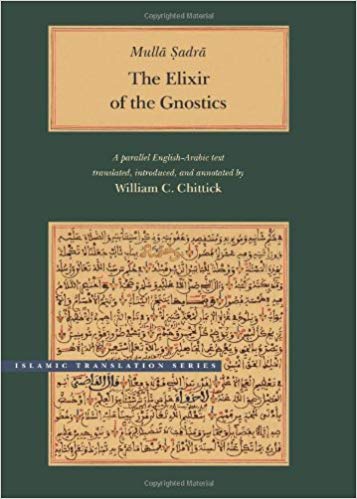
We published another book by Averroës or Ibn Rushd — Averroës is a Latin corruption of a Hebrew corruption of his original Arabic name — when we issued the Middle Commentary on Aristotle’s De anima. It appeared in a dual-language edition, with the original Arabic facing a translation by Alfred L. Ivry, who was, at the time, a professor in the Skirball Department of Hebrew and Judaic Studies and the Department of Middle Eastern and Islamic Studies at New York University.
This is a slightly modified form of the summary that I believe I wrote for the book:
Averroës (AD 1126-1198), the greatest Aristotelian of the Islamic philosophical tradition, composed some thirty-eight commentaries on the “First Teacher’s” corpus, including three separate treatments of De Anima(“On the Soul”): the works commonly referred to as the Short, Middle, and Long Commentaries. The Middle Commentary—actually Averroës’s last writing on the text—remains one of his most refined and politically discreet treatments of Aristotle, offering modern readers Averroës’s final statement on the material intellect and conjunction as well as an accessible historical window on Aristotle’s work as it was interpreted and transmitted in the medieval period.
In the fourteenth-century Inferno of Dante Alighieri’s Divine Comedy, Averroës, described as the man “who made the Great Commentary,” appears along with other non-Christian Greek and Muslim thinkers and the great countercrusade sultan Saladin (Salah al-Din), in Limbo, the highest circle of Hell. It was the best that Dante could do for him (and for such other figures as Plato and Aristotle and Homer and Dante’s own hero, the Roman poet Virgil), since he lacked Christian baptism.
With Mulla Sadra’s The Elixir of the Gnostics, which featured both the original Arabic text and, on the facing page, an English translation by William Chittick, of Stony Brook University in the State University of New York system, we moved to a very different thinker..
Here’s the summary text that (I believe) I wrote for it back in 2013:
Sadr al-Din Muhammad Shirazi (1572-1640), more commonly called Mulla Sadra, was one of the grand scholars of later-period Islamic philosophy and has grown to become one of the best-known Muslim philosophers. Iksir al-’arifin, or Elixir of the Gnostics, is unique among Sadra’s writings in that it reworks and amplifies an earlier Persian work, the Jawidan-nama (Book of the Everlasting) by Afdal al-Din Kashani, or Baba Afdal.











